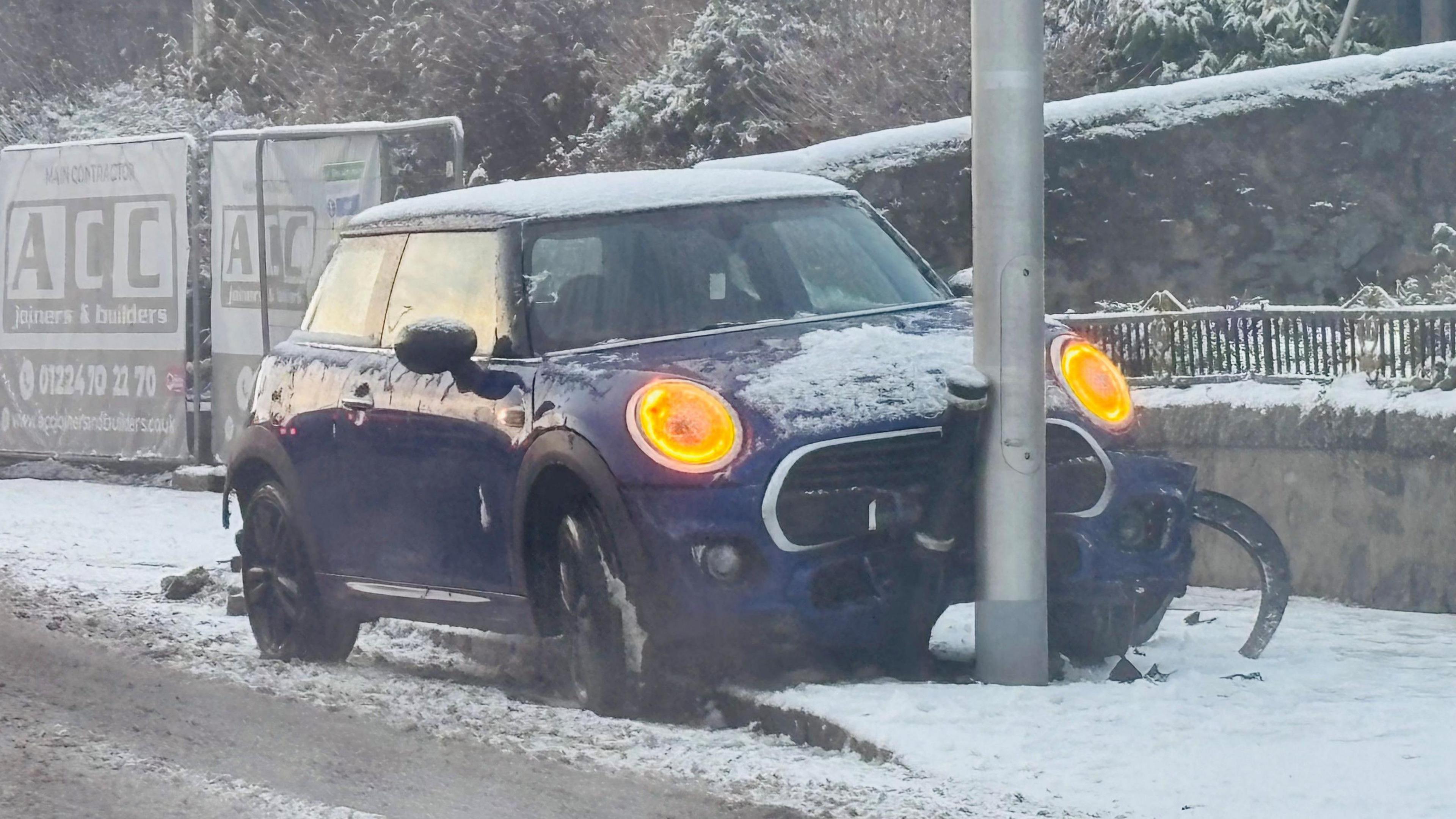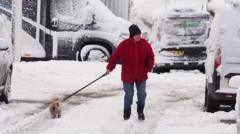
Simon King , Lead Weather Presenter and Hafsa Khalil
- 19 November 2025, 07:02 GMT
- 725 Comments
Updated 4 hours ago
Snow and ice warnings are in place across the UK, with the winter weather leading to travel delays and disruption.
Areas from London to Shetland saw snow on Wednesday, with Met Office weather stations in Lake Vyrnwy in Powys, Wales and in Altnaharra in the Scottish Highlands recording 7cm (2.7in).
Dozens of schools were closed in Scotland and road travel disrupted in Derbyshire and Gwynedd, Wales, as widespread yellow weather warnings remain in place.
Separately, the UK Health Security Agency (UKHSA) has issued yellow and amber cold-health alerts until Saturday, saying there could be “significant” impacts to the elderly and people with health conditions.
Watch: Snow and sleet hit parts of the UK

Snow in Carrbridge, in the Scottish Highlands, has some carrying skis
A more severe amber weather warning for snow has been issued for Thursday for part of north-east England.
An area of rain, sleet and snow moved across the UK overnight into Wednesday morning, leading to some icy patches and some areas waking up to a covering of snow.
Dozens of schools in north-east Scotland and the Highlands have closed, with some opening later in the day. Around a quarter of schools in Shetland are also closed.
Some ferries have been cancelled in Scotland, while in Wales and Derbyshire, there has been some disruption on main roads.
The Met Office said “ice could create some particularly tricky travel conditions”.
Darren Clark, a severe weather resilience adviser for National Highways – which looks after England’s major roads – has urged all drivers to check lights and tyres before setting off so not to be caught out.
He added there are more than 500 gritters available to be called on when snow hits.
Motorists are also advised to have food, clothing and a torch in their vehicles.
-
How to drive in snow and icy weather
- 1 day ago
The Woodhead Pass between Hollingworth and Flouch in Derbyshire reopened on Wednesday afternoon after it had been closed in both directions due to overnight snowfall.
Meanwhile in Wales, the B4391 in Gwynedd between Rhyd y Sarn and Pen y Bryn has been closed in both directions, in the country’s north-west.
Traffic Scotland, which monitors the country’s roads, has said that frequent snow showers may lead to disruption in areas with weather warnings.
Gritters are patrolling roads to carry out extra treatment where needed in south-east and north-west Scotland, according to Bear Scotland, which maintains trunk roads.
Calmac ferries in Scotland have warned some services have been cancelled, while others are “liable to disruption or cancellation at short notice”.
Bus and train service delays and cancellations are also possible.
Travellers are advised to plan their route, check for any delays, closures or cancellations, and give themselves ample time to prepare and travel.
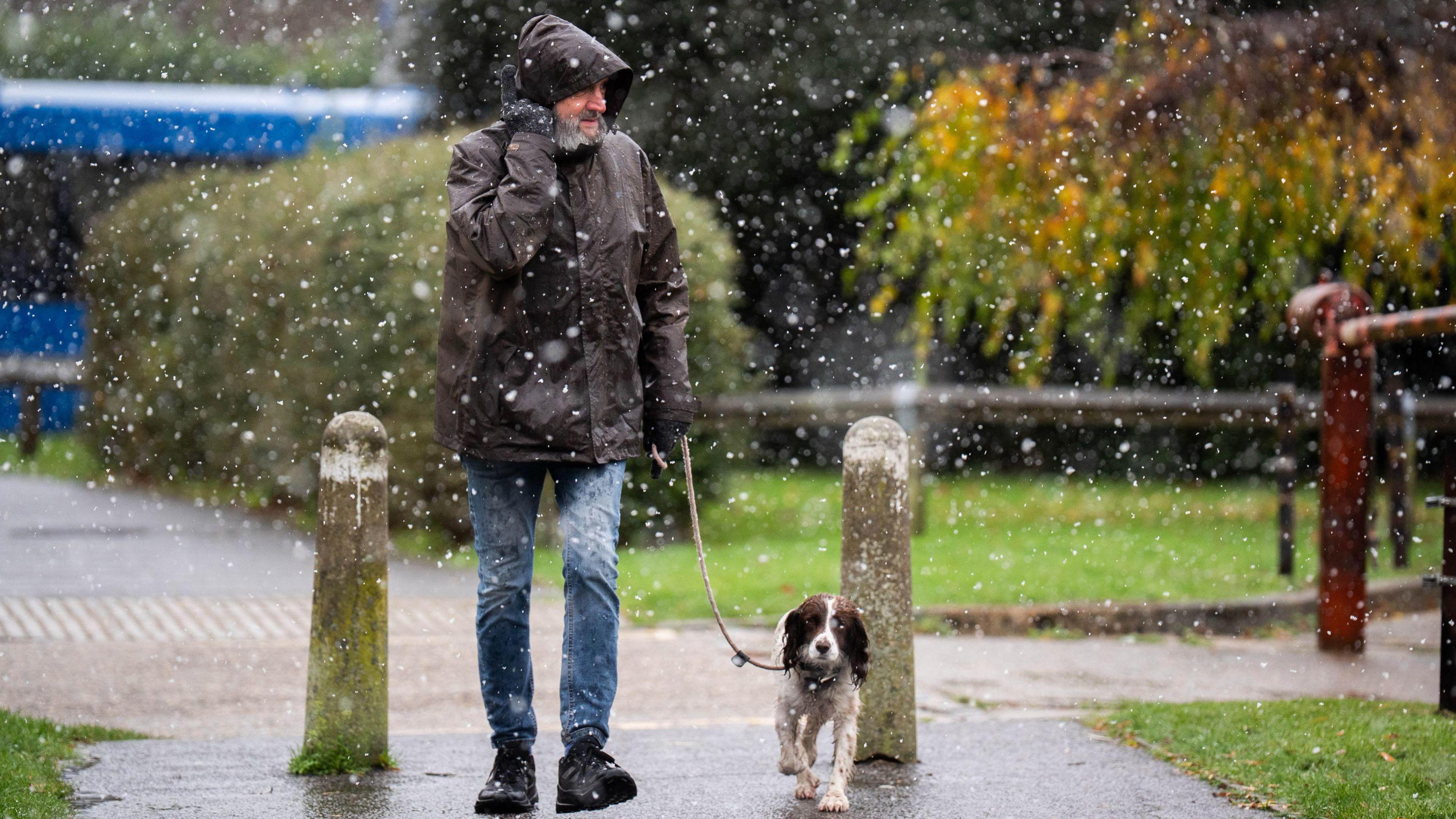
This dog still needs to go for a walk in Crawley, West Sussex
How cold does it have to be to snow?

Sheep have their share of snow in Llandegla, in Wales
Met Office yellow warnings for the Midlands and southern Scotland were in place until 11:00 GMT, while snow and ice warnings in Northern Ireland, northern Scotland, south-west Wales, and other parts of England will remain into Thursday.
The North York Moors and parts of the Yorkshire Wolds will see a more severe amber warning come into force from 03:00 to 21:00 GMT on Thursday.
By the end of Thursday, those hills above 100m elevation could accumulate as much as 15-25 cm of snow.
This is likely to cause “substantial disruption” with rural communities being cut off, vehicles becoming stranded and potential for power cuts.
Gusty winds leading to blizzards and thunderstorms may bring additional hazards.
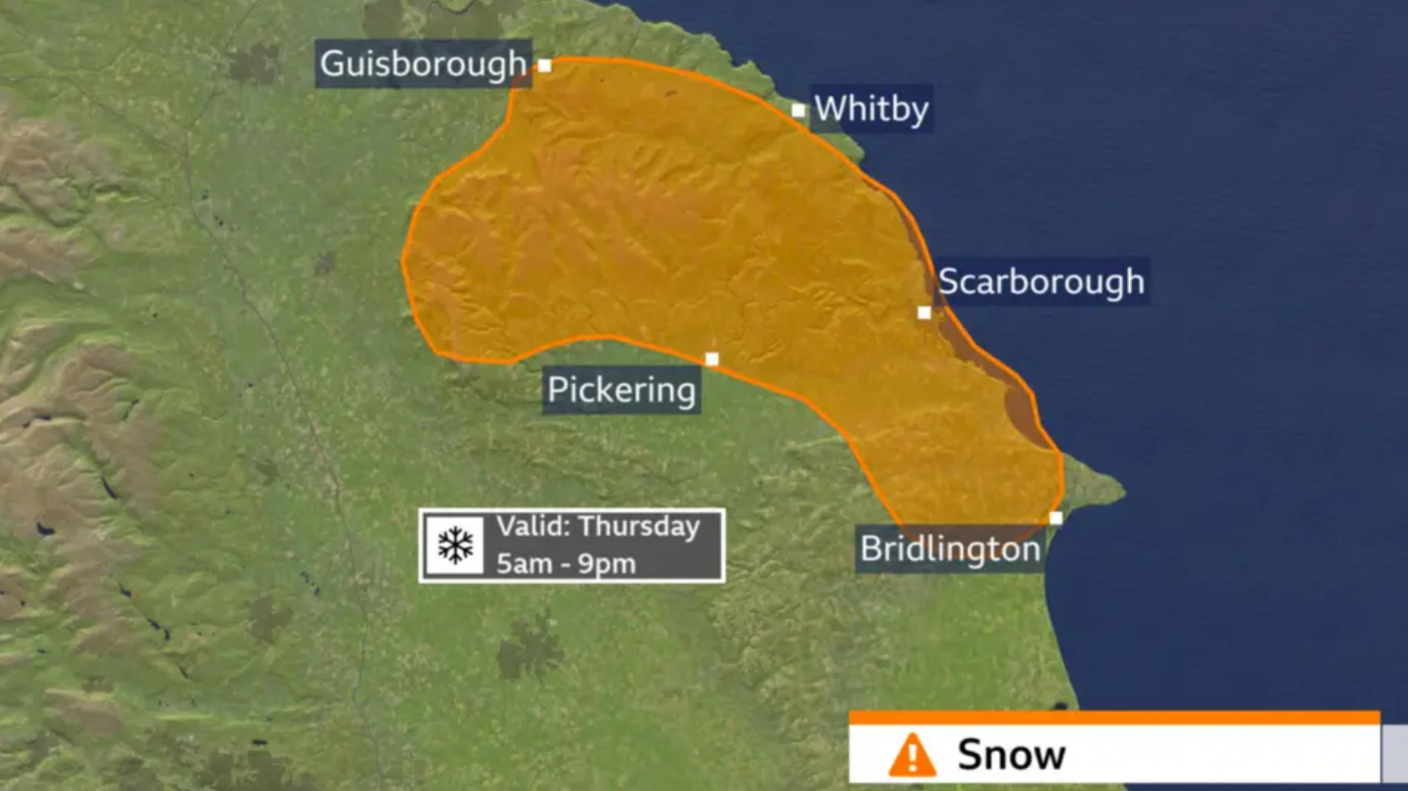
Met Office amber warning issued for Thursday in north east England
Yellow cold-health alerts from the UKHSA are also in force across England until 08:00 GMT on Saturday, with more severe amber alerts issued for the North West, North East, Yorkshire and Humber.
These alerts are mainly for health and social care services, warning of “significant” impacts to more vulnerable members of the community.
Extra demands may be put on services to deal with the colder weather.
Thursday night will be the coldest night this week, with temperatures widely falling below zero and down to -12C in rural Scotland.
By the weekend, it will become less cold, with temperatures rising slightly to average by Saturday.
-
- 23 hours ago
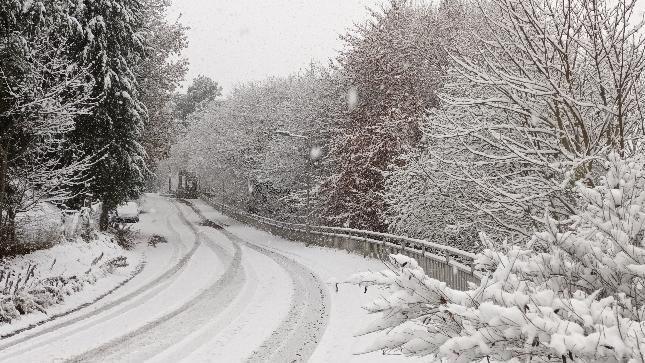
-
- 5 hours ago
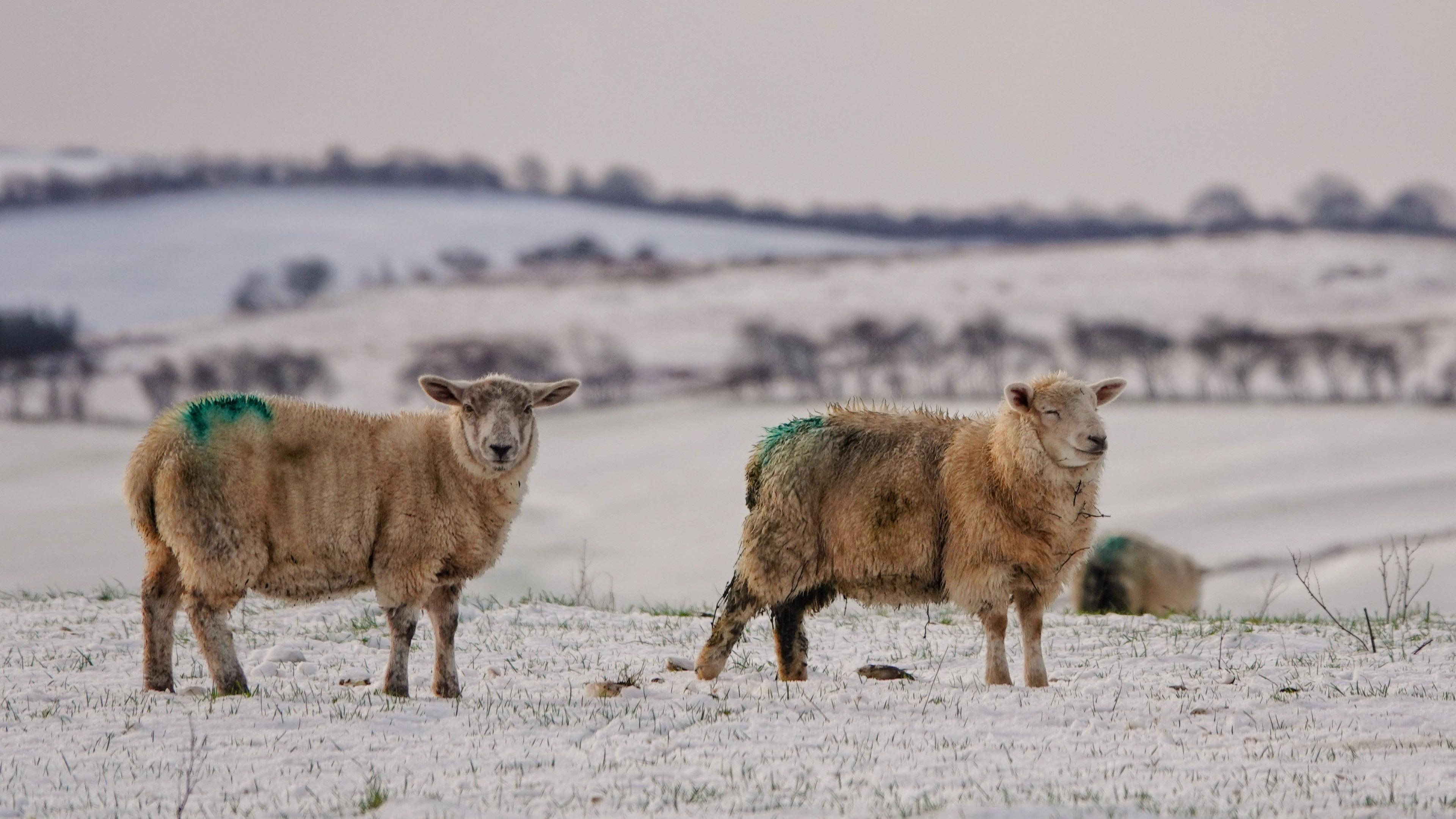
-
- 6 hours ago

-
- 3 hours ago
